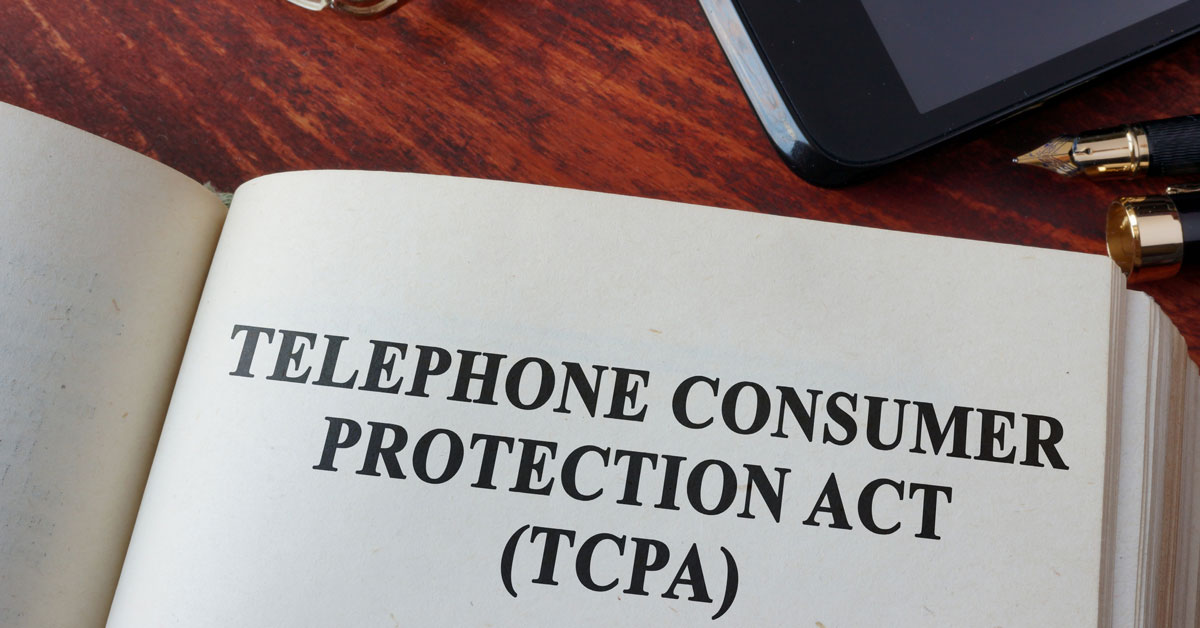Telephone Consumer Protection Act: New Rules for Withdrawing Consent
The Telephone Consumer Protection Act (TCPA) prohibits the use of automated text messages (robotexts) and autodialed phone calls (robocalls) for marketing purposes without the prior express marketing consent of the called party to being included in a cold calling list. Effective April 11, 2025, the Federal Communications Commission’s (FCC) final rule codifies clear regulatory protections affirming consumers’ right to withdraw previously given consent for cold calling services and text messages.
New Revocation Rules
The final rule does the following:
- Clarifies that a consumer may revoke marketing consent in any reasonable manner, and provides specific examples
- Requires that revocation requests be honored within a reasonable time and not more than ten business days of receipt of the revocation.
- Restricts marketers to a single text message or call confirming a consumer’s revocation request.; and
- Clarifies that revocation of marketing consent applies only to those calls and texts for which consent is required under the TCPA.
How to Stay in TCPA Compliance
Businesses who utilize automated calls and texts for marketing purposes should ensure that they are in TCPA compliance, and particularly this most recent Final Rule. There are several steps that can help ensure the new changes are adhered to:
- For robotexts, ensure that consumers have a mechanism for revoking consent. Many texting protocols permit the consumer to reply “STOP” or “Opt Out” or otherwise unsubscribe. Some protocols, however, do not permit two-way texting. In these instances, there must be a clear disclosure in the text that technical limitations prevent the consumer from texting back, and there must be a clear and conspicuous alternate way for a consumer to revoke consent. This can include mechanisms such as texting or calling a different number or visiting a linked website. Regardless of the option used, it must be clearly communicated to a consumer to allow them to revoke consent.
- The final rule states that when a consumer uses the words “STOP”, “Opt Out”, “Unsubscribe”, “Cancel”, or “Revoke” via reply to a robotext, this “constitutes a per say reasonable means to revoke consent.” These words may also be used in response to robocalls. Additionally, consumers are not precluded from “the use of other words and phrases to revoke consent.” In scenarios where there is a dispute over whether a consumer uses other words or phrases other than those listed above and claims to have revoked consent, the FCC advises that courts use a “totality-of-the-circumstances analysis to determine whether the request to revoke has been conveyed in a reasonable manner.”
- Once a consumer has revoked consent to further contact, a marketer is permitted a single message or phone call to confirm the revocation request. That phone call or text can only be made for the sole purpose of confirming the consumer’s revocation of consent and may not include any marketing or promotional information.
- The final rule makes clear that once consent is revoked in any manner, either via text or phone call or in some other reasonable manner, that revocation applies to all methods of communications from the marketer.
Businesses who utilize robotexts and robocalls for marketing or promotional purposes should familiarize themselves with the Federal Communication Commission’s (FCC) final rule and ensure that they are compliant with the newest consumer protections.
Levin Ginsburg is a full-service law firm that prides itself on being counselors for all types of businesses and individuals. Regardless of your need, our attorneys exercise great care in being thorough, organized, and efficient in serving clients.



